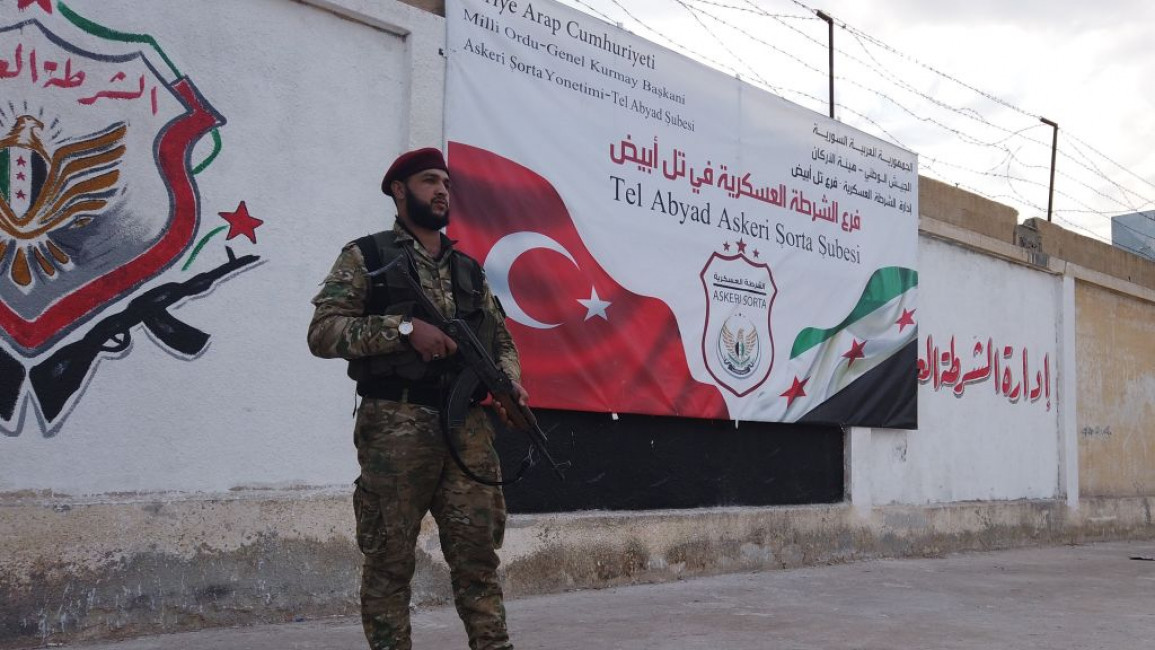Syrian mercenaries robbed of their wages: report
Many of the Syrian fighters deployed, sometimes forcibly, in foreign conflict theatres such as Libya and Nagorno-Karabakh are robbed of their wages, said a report released Thursday.
Since late 2019, thousands of fighters have been recruited as mercenaries, directly or indirectly, by Turkey and Russia, the two main foreign brokers in the decade-old Syrian war.
The Syria Justice and Accountability Centre (SJAC), in collaboration with the Syrians for Truth and Justice (STJ), conducted a study into the exploitative recruitment of these mercenaries.
The largest number of Syrian mercenaries are former anti-regime rebels who have washed up in parts of northwestern Syria under Turkish influence.
"The participation of Syrians as mercenary fighters in combat abroad is serving to enrich and strengthen some of the most criminal armed groups inside the country, particularly Turkish-backed groups in the northwest," said Mohammad al-Abdallah, executive director of SJAC.
Some former members of the regular Syrian army and fighters allied militia groups have also been sent by Russian military players, such as the shadowy Wagner Group.
(1/2) In collaboration with @STJ_SYRIA_ENG, SJAC just released its latest report "Mercenarism in Syria: Predatory Recruitment and the Enrichment of Criminal Militias." Read more here: https://t.co/CFlv9q6yIu
— Syria Justice and Accountability Centre (@SJAC_info) May 27, 2021
In Libya, which has been conflict-riven for the past decade, Turkey has supported the UN-recognised Government of National Accord while Russia backed forces loyal to military strongman Khalifa Haftar.
In the conflict that erupted last year in the disputed Caucasus region of Nagorno-Karabakh, Turkey dispatched fighters from its Syrian proxies to support Azerbaijan against Armenia.
The recruits are usually members of groups that were defeated by pro-regime forces over the course of the Syrian conflict and are loosely united under the umbrella of the Turkey-controlled Syrian National Army (SNA).
"The international community must hold those involved accountable, while also addressing the root causes that make mercenary work one of the only sources of income for many Syrian," said STJ executive director Bassam al-Ahmad.
$3,000 salary
The report details how many of the fighters sent to Libya or Nagorno-Karabakh had little choice in the matter and only received a fraction of the money they were promised.
"Individual fighters were regularly defrauded by senior SNA figures," it said.
The report recounts the case of a fighter sent to Libya with a brigade from the SNA-led Sultan Murad division who said top officers tried to seize the wages of the rank-and-file.
"We went three months without being paid, and after we each asked for an advance of $300 they only gave us 100 and kept the rest," the fighter testified.
Recruited mercenaries were offered deals, sometimes in written contracts, fetching $3,000 in monthly pay with compensation to the families of $75,000 in case of death and sometimes even Turkish citizenship.
A broker who organised recruitment drives for Turkey and is quoted in the report said "the armed groups always breach the contracts" and give the fighters salaries of $800-1,400.
Issues of unpaid compensation were also reported after Syrian mercenaries were killed in Libya and in Nagorno-Karabakh.
In northwestern Syria, some SNA fighters who had been given homes by their militia were kicked out after refusing to be deployed in Libya.
Mohammad al-Abdallah said keeping unpaid fighters from a covert operation stranded in a foreign war zone was a recipe for crime.
"The reduction of wages pushed the fighters -- who consider themselves above the law -- to engage in more criminal activities," he told AFP.
Abdallah said burglaries, sex trafficking and kidnappings committed by Syrian mercenaries were reported in Libya.



